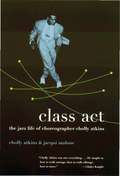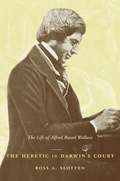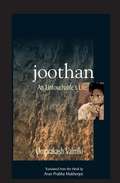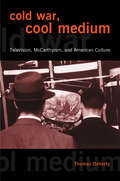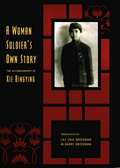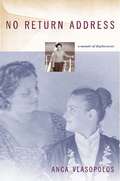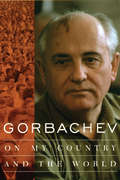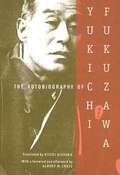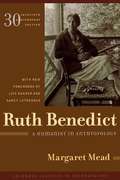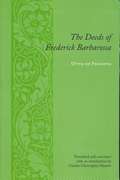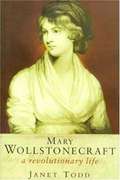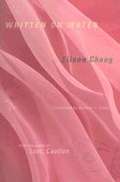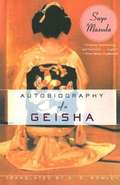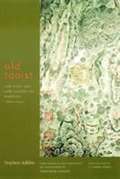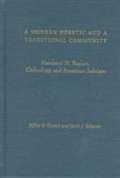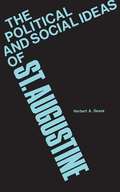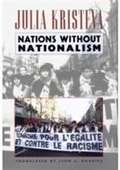- Table View
- List View
Class Act: The Jazz Life of Choreographer Cholly Atkins
by Jacqui Malone Cholly AtkinsCholly Atkins's career has spanned an extraordinary era of American dance. He began performing during Prohibition and continued his apprenticeship in vaudeville, in nightclubs, and in the army during World War II. With his partner, Honi Coles, Cholly toured the country, performing with such jazz masters as Louis Armstrong, Cab Calloway, and Count Basie. As tap reached a nadir in the fifties, Cholly created the new specialization of "vocal choreography," teaching rhythm-and-blues singers how to perform their music by adding rhythmical dance steps drawn from twentieth-century American dance, from the Charleston to rhythm tap. For the burgeoning Motown record label, Cholly taught such artists as the Supremes, Smokey Robinson and the Miracles, the Temptations, Gladys Knight and the Pips, and Marvin Gaye to command the stage in ways that would enhance their performances and "sell" their songs.Class Act tells of Cholly's boyhood and coming of age, his entry into the dance world of New York City, his performing triumphs and personal tragedies, and the career transformations that won him gold records and a Tony for choreographing Black and Blue on Broadway. Chronicling the rise, near demise, and rediscovery of tap dancing, the book is both an engaging biography and a rich cultural history.
The Heretic in Darwin's Court: The Life of Alfred Russel Wallace
by Ross A. SlottenThe Heretic in Darwin's Court explores the controversial life and scientific contributions of Alfred Russel Wallace-Victorian traveler, spiritualist, and scientist who proposed the theory of natural selection with his noted colleague, Charles Darwin. In this biography, Ross A. Slotten recounts Wallace's twelve years of harrowing travels in the western and eastern tropics, which place him in the pantheon of the greatest explorer-naturalists of the nineteenth century. The remaining fifty years of Wallace's life were just as controversial. In addition to diverging from Darwin on two fundamental issues-sexual selection and the origin of the human mind-Wallace pursued topics that most scientific figures of his day conspicuously avoided, including spiritualism, phrenology, mesmerism, environmentalism, and life on Mars.The Heretic in Darwin's Court casts new light on Wallace's intellectual investigations into the origins of life, consciousness, and the universe itself. His achievements remain some of the most inspired scientific accomplishments in history.
The Heretic in Darwin’s Court: The Life of Alfred Russel Wallace
by Ross SlottenDuring their lifetimes, Alfred Russel Wallace and Charles Darwin shared credit and fame for the independent and near-simultaneous discovery of natural selection. Together, the two men spearheaded one of the greatest intellectual revolutions in modern history, and their rivalry, usually amicable but occasionally acrimonious, forged modern evolutionary theory. Yet today, few people today know much about Wallace.The Heretic in Darwin's Court explores the controversial life and scientific contributions of Alfred Russel Wallace—Victorian traveler, scientist, spiritualist, and co-discoverer with Charles Darwin of natural selection. After examining his early years, the biography turns to Wallace's twelve years of often harrowing travels in the western and eastern tropics, which place him in the pantheon of the greatest explorer-naturalists of the nineteenth century. Tracing step-by-step his discovery of natural selection—a piece of scientific detective work as revolutionary in its implications as the discovery of the structure of DNA—the book then follows the remaining fifty years of Wallace's eccentric and entertaining life. In addition to his divergence from Darwin on two fundamental issues—sexual selection and the origin of the human mind—he pursued topics that most scientific figures of his day conspicuously avoided, including spiritualism, phrenology, mesmerism, environmentalism, and life on Mars.Although there may be disagreement about his conclusions, Wallace's intellectual investigations into the origins of life, consciousness, and the universe itself remain some of the most inspired scientific accomplishments in history. This authoritative biography casts new light on the life and work of Alfred Russel Wallace and the importance of his twenty-five-year relationship with Charles Darwin.
Joothan: An Untouchable's Life
by Omprakash Valmiki Arun Prabha MukherjeeOmprakash Valmiki describes his life as an untouchable, or Dalit, in the newly independent India of the 1950s. "Joothan" refers to scraps of food left on a plate, destined for the garbage or animals. India's untouchables have been forced to accept and eat joothan for centuries, and the word encapsulates the pain, humiliation, and poverty of a community forced to live at the bottom of India's social pyramid. Although untouchability was abolished in 1949, Dalits continued to face discrimination, economic deprivation, violence, and ridicule. Valmiki shares his heroic struggle to survive a preordained life of perpetual physical and mental persecution and his transformation into a speaking subject under the influence of the great Dalit political leader, B. R. Ambedkar. A document of the long-silenced and long-denied sufferings of the Dalits, Joothan is a major contribution to the archives of Dalit history and a manifesto for the revolutionary transformation of society and human consciousness.
Cold War, Cool Medium: Television, McCarthyism, and American Culture
by Thomas DohertyConventional wisdom holds that television was a co-conspirator in the repressions of Cold War America, that it was a facilitator to the blacklist and handmaiden to McCarthyism. But Thomas Doherty argues that, through the influence of television, America actually became a more open and tolerant place. Although many books have been written about this period, Cold War, Cool Medium is the only one to examine it through the lens of television programming. To the unjaded viewership of Cold War America, the television set was not a harbinger of intellectual degradation and moral decay, but a thrilling new household appliance capable of bringing the wonders of the world directly into the home. The "cool medium" permeated the lives of every American, quickly becoming one of the most powerful cultural forces of the twentieth century. While television has frequently been blamed for spurring the rise of Senator Joseph McCarthy, it was also the national stage upon which America witnessed -- and ultimately welcomed -- his downfall. In this provocative and nuanced cultural history, Doherty chronicles some of the most fascinating and ideologically charged episodes in television history: the warm-hearted Jewish sitcom The Goldbergs; the subversive threat from I Love Lucy; the sermons of Fulton J. Sheen on Life Is Worth Living; the anticommunist series I Led 3 Lives; the legendary jousts between Edward R. Murrow and Joseph McCarthy on See It Now; and the hypnotic, 188-hour political spectacle that was the Army-McCarthy hearings. By rerunning the programs, freezing the frames, and reading between the lines, Cold War, Cool Medium paints a picture of Cold War America that belies many black-and-white clichés. Doherty not only details how the blacklist operated within the television industry but also how the shows themselves struggled to defy it, arguing that television was preprogrammed to reinforce the very freedoms that McCarthyism attempted to curtail.
A Woman Soldier's Own Story
by Barry Brissman Bingying XieFor the first time, a complete version of the autobiography of Xie Bingying (1906-2000) provides a fascinating portrayal of a woman fighting to free herself from the constraints of ancient Chinese tradition amid the dramatic changes that shook China during the 1920s, '30s, and '40s.Xie's attempts to become educated, her struggles to escape from an arranged marriage, and her success in tricking her way into military school reveal her persevering and unconventional character and hint at the prominence she was later to attain as an important figure in China's political culture. Though she was tortured and imprisoned, she remained committed to her convictions. Her personal struggle to define herself within the larger context of political change in China early in the last century is a poignant testament of determination and a striking story of one woman's journey from Old China into the new world.
A Woman Soldier's Own Story: The Autobiography of Xie Bingying
by Bingying XieFor the first time, a complete version of the autobiography of Xie Bingying (1906-2000) provides a fascinating portrayal of a woman fighting to free herself from the constraints of ancient Chinese tradition amid the dramatic changes that shook China during the 1920s, '30s, and '40s.Xie's attempts to become educated, her struggles to escape from an arranged marriage, and her success in tricking her way into military school reveal her persevering and unconventional character and hint at the prominence she was later to attain as an important figure in China's political culture. Though she was tortured and imprisoned, she remained committed to her convictions. Her personal struggle to define herself within the larger context of political change in China early in the last century is a poignant testament of determination and a striking story of one woman's journey from Old China into the new world.
No Return Address: A Memoir of Displacement
by Anca VlasopolosNo Return Address is a vivid memoir of a life in exile and a poignant meditation on pleasure and loss, repression and transgression, and the complexities of love under harsh human conditions. In recounting her life's journey from Romania to Paris and Brussels, then on to the United States, Anca Vlasopolos writes movingly of the peculiar attributes of displacement in the contemporary world—the hyphenated, ambiguous identities; the purgatory in which immigrants await transfer to another country; the mysterious nostalgia for places and events dimly recalled. Throughout, she describes the constant search for a place to truly call home.Vlasopolos renders a clear and loving portrait of her mother, an Auschwitz survivor courageously raising a young girl by herself after the death of her husband, a political dissident. She details their years of limbo in Brussels and Paris and of settlement in Detroit, Michigan, as well as her ultimate decision to identify the United States as home, inspired by the strong multicultural quality that allows so many others to do the same.
Gorbachev: On My Country and the World
by Mikhail GorbachevHere is the whole sweep of the Soviet experiment and experience as told by its last steward. Drawing on his own experience, rich archival material, and a keen sense of history and politics, Mikhail Gorbachev speaks his mind on a range of subjects concerning Russia's past, present, and future place in the world. Here is Gorbachev on the October Revolution, Gorbachev on the Cold War, and Gorbachev on key figures such as Lenin, Stalin, and Yeltsin. The book begins with a look back at 1917. While noting that tsarist Russia was not as backward as it is often portrayed, Gorbachev argues that the Bolshevik Revolution was inevitable and that it did much to modernize Russia. He strongly argues that the Soviet Union had a positive influence on social policy in the West, while maintaining that the development of socialism was cut short by Stalinist totalitarianism. In the next section, Gorbachev considers the fall of the USSR. What were the goals of perestroika? How did such a vast superpower disintegrate so quickly? From the awakening of ethnic tensions, to the inability of democrats to unite, to his own attempts to reform but preserve the union, Gorbachev retraces those fateful days and explains the origins of Russia's present crisis. But Gorbachev does not just train his critical eye on the past. He lays out a blueprint for where Russia needs to go in the next century, suggesting ways to strengthen the federation and achieve meaningful economic and political reforms. In the final section of the book, Gorbachev examines the "new thinking" in foreign policy that helped to end the Cold War and shows how such approaches could help resolve a range of current crises, including NATO expansion, the role of the UN, the fate of nuclear weapons, and environmental problems.Gorbachev: On My Country and the World reveals the unique vision of a man who was a powerful actor on the world stage and remains a keen observer of Russia's experience in the twentieth century.
Gorbachev: On My Country and the World
by Mikhail GorbachevThe last president of the Soviet Union discusses Communism, the Cold War, and bringing democracy to Russia in this sweeping political memoir. Drawing on his own experience and rich archival material, Mikhail Gorbachev shares his illuminating perspective on Russia's past, present, and future place in the world. Beginning with the October Revolution of 1917, he notes how much Vladimir Lenin and the Bolshevik Party did to modernize Russia. While he argues that the Soviet Union had a positive influence on social policy in the West, Gorbachev maintains that this positive development was cut short by Stalinist totalitarianism. Discussing the fall of the USSR in depth, Gorbachev examines the goals of perestroika, awakening ethnic tensions, the inability of democrats to unite, and his own attempts to preserve the union through reform. In retracing those fateful days, he explains the origins of Russia's present crisis. He then lays out a blueprint for Russia&’s future, charting a path toward meaningful economic and political reforms. He also presents possible resolutions to a number of international dilemmas, including NATO expansion, the role of the UN, the fate of nuclear weapons, and environmental problems
Hitchcock Annual (Volume #17)
by Richard Allen Sidney GottliebHitchcock Annual: Volume 17 contains essays on two of Hitchcock's most well-known films, Notorious and The Birds, and two of his lesser-known works, Juno and the Paycock and Stage Fright. It also includes a detailed study of the unused score for Frenzy by Henry Mancini, an examination of Hitchcock's presence in contemporary art installations and experimental films, and a review essay on two recent books on Hitchcock.
The Autobiography of Yukichi Fukuzawa
by Yukichi Fukuzawa Eiikchi KiyookaYukichi Fukuzawa was a leading figure in the cultural revolution that transformed Japan from an isolated feudal nation into a full-fledged player in the modern world..His autobiography gives us an inside view of the formation of a new Japan.
Ruth Benedict: A Humanist in Anthropology
by Margaret MeadMargaret Mead offers a deeply insightful portrait of a woman who overcame the barriers of sexism to become one of the most compelling intellectual figures in twentieth-century American life.
The Deeds of Frederick Barbarossa
by Rahewin Charles Christopher Mierow Otto Of Freising"The Deeds of Frederick Barbarossa" is the "official biography" of German king and Holy Roman Emperor Frederick I. This historical firsthand account was begun by his maternal uncle, Bishop Otto of Freising, the leading medieval church figure and notable historian, and continued by a less well known cleric, Rahewin. This chronicle is the single most important source for the early reign of Frederick Barbarossa and the most valuable biographical study to come out of the twelfth century. In a letter written to his uncle, Frederick recounted his life and the principal events of his reign. The first of the four books that constitute this account were written by Otto and cover events from 1075 to 1152, from the reign of Henry IV through that of Conrad III. The second book draws heavily on the letter, providing invaluable insight into Frederick's attempts to establish and consolidate the Hohenstaufen empire.
The Collected Letters of Mary Wollstonecraft
by Mary Wollstonecraft Janet ToddYou will smile at an observation that has just occurred to me: -- I consider those minds as the most strong and original, whose imagination acts as the stimulus to their senses, Mary Wollstonecraft wrote in a letter contemplating the role of the imagination in human relationships. Enlightenment feminist and famed author of The Vindication of the Rights of Woman, Wollstonecraft was also one of the most distinctive letter writers of the eighteenth century. This volume contains all of her known correspondence. Wollstonecraft talked and thought on paper; her letters were a large part of the drama of her life. In them she grows from an awkward child of fourteen to the woman of thirty-eight facing death in childbirth. Where the letters of "bluestocking" writers such as Elizabeth Carter and Catherine Talbot have a public quality, Wollstonecraft's letters -- whether written in haste or carefully composed, opinionated, or vulnerable -- stand out among those of other contemporary writers for their candor and lack of sentimentality. They create a palpable world, a sense of inner vitality, revealing a woman of consistent character who nonetheless struggled to reconcile disparate aspects of her life: integrity and sexual longing; the needs and duties of a woman; motherhood and intellectual life; fame and domesticity; reason and passion. Written in cramped lodgings and swaying boats, in the wilds of Scandinavia and the chill of Paris in winter, these letters record not a finished, ordered life viewed retrospectively but the dynamic process of living. Collectively, they form a remarkable work of autobiography that reveals the many dimensions of Wollstonecraft's genius.
Written on Water
by Eileen Chang Andrew Jones Ailing Zhang Nicole HuangKnown as "the Garbo of Chinese letters" for her elegance and the aura of mystery that surrounded her, Eileen Chang is regarded as one of the greatest and most influential modern Chinese novelists and cultural critics of the twentieth century. In Written on Water, first published in 1945 and now available for the first time in English, Chang offers essays on art, literature, war, and urban life, as well as autobiographical reflections. Chang takes in the sights and sounds of wartime Shanghai and Hong Kong, with the tremors of national upheaval and the drone of warplanes in the background, and inventively fuses explorations of urban life, literary trends, domestic habits, and historic events. These evocative and moving firsthand accounts examine the subtle and not-so-subtle effects of the Japanese bombing and occupation of Shanghai and Hong Kong. Eileen Chang writes of friends, colleagues, and teachers turned soldiers or wartime volunteers, and her own experiences as a part-time nurse. Her nuanced depictions range from observations of how a woman's elegant dress affects morale to descriptions of hospital life. With a distinctive style that is at once meditative, vibrant, and humorous, Chang engages the reader through sly, ironic humor; an occasionally chatty tone; and an intense fascination with the subtleties of modern urban life. The collection vividly captures the sights and sounds of Shanghai, a city defined by its mix of tradition and modernity. Chang explores the city's food, fashions, shops, cultural life, and social mores; she reveals and upends prevalent attitudes toward women and in the process presents a portrait of a liberated, cosmopolitan woman, enjoying the opportunities, freedoms, and pleasures offered by urban life. In addition to her descriptions of daily life, Chang also reflects on a variety of artistic and literary issues, including contemporary films, the aims of the writer, the popularity of the Peking Opera, dance, and painting.
Autobiography of a Geisha
by G. G. Rowley Sayo MasudaSayo Masuda was a geisha at a hot springs resort, where the realities of sex for sale are unadorned by the trappings of wealth and power. Remarkable for its wit and frankness, the book is a moving record of a woman's survival on the margins of Japanese society -- in the words of the translator, "the superbly told tale of a woman whom fortune never favored yet never defeated."
Old Taoist: The Life, Art, And Poetry Of Kodôjin (1865-1944)
by Stephen Addiss J. Thomas Rimer Jonathan ChavesIn the literary and artistic milieu of early modern Japan the Chinese and Japanese arts flourished side by side. Kodojin, the "Old Taoist" (1865-1944), was the last of these great poet-painters in Japan. Under the support of various patrons, he composed a number of Taoist-influenced Chinese and Japanese poems and did lively and delightful ink paintings, continuing the tradition of the poet-sage who devotes himself to study of the ancients, lives quietly and modestly, and creates art primarily for himself and his friends. Portraying this last representative of a tradition of gentle and refined artistry in the midst of a society that valued economic growth and national achievement above all, this beautifully illustrated book brings together 150 of Kodojin's Chinese poems (introduced and translated by Jonathan Chaves), more than 100 of his haiku and tanka (introduced and translated by Stephen Addiss), and many examples of his calligraphy and ink paintings. Addiss's in-depth introduction details the importance of the poet-painter tradition, outlines the life of Kodojin, and offers a critical appraisal of his work, while J. Thomas Rimer's essay puts the literary work of the Old Taoist in context.
A Modern Heretic and a Traditional Community: Mordecai M. Kaplan, Orthodoxy, and American Judaism
by Jeffrey S. Gurock Jacob J. SchacterEncompasses more than previous autobiographies of Kaplan (1881-1983) by considering at length the community he came from, lived in, fought with, and left behind. Follows him from his early days as a member in good standing in the New York Orthodox Jewish community, through his private estrangement and public divorce from Orthodoxy, to his founding of Reconstructionism and many decades as the movement's leader. Queries whether a religious group can learn anything from one of its members who has rejected its most fundamental beliefs. Annotation c. by Book News, Inc., Portland, Or.
The Political and Social Ideas of St. Augustine
by Herbert A. DeaneHerbert A. Deane discusses St. Augustine's views on humankind, society, and the state, in terms of Augustine's theological, political, and social thought. Deane writes in his Preface that Augustine did not have a systematic philosophy. Because of this, the author's writes that his second aim of his book is to organize his ideas into the above categories. Deane, not only elucidates Augustine's thought clearly, he also substantiates his elucidation with massive quotations from Augustine's writings and from the writings of other philosophers, theologians, and political and social analysts and critics. The following quotations are taken from the back cover of the book: In describing Augustine, the author captures the essence of the man in these words: "Genius he had in full measure . . . he is the master of the phrase or the sentence that embodies a penetrating insight, a flash of lightning that illuminates the entire sky; he is the rhetorician, the epi-grammist, the polemicist, but not the patient, logical systematic philosopher." "Professor Deane has been remarkably successful in keeping different facets of Augustine's multi-dimensional thought in view . . . [he] significantly contributes both to historical understanding of Augustine's political thinking and to appreciation of its permanent relevance to the moral dilemmas of politics."
Nations Without Nationalism (European Perspectives)
by Richard Wolin Julia Kristeva Lawrence D. Kritzman Leon S. Roudiez<p>Underlying Julia Kristeva's latest work is the idea that otherness - whether it be ethnic, religious, social, or political - needs to be understood and accepted in order to guarantee social harmony. Nations Without Nationalism is an impassioned plea for tolerance and for commonality, aimed at a world brimming over with racism and xenophobia. <p>Responding to the rise of neo-Nazi groups in Germany and Eastern Europe and the continued popularity of the National Front in France, Kristeva turns to the origins of the nation-state to illustrate the problematic nature of nationalism and its complex configurations in subsequent centuries. <p>For Kristeva, the key to commonality can be found in Montesquieu's esprit general - his notion of the social body as a guaranteed hierarchy of private rights. <p>Nations Without Nationalism also contains Kristeva's thoughts on Harlem Desir, the founder of the antiracist organization SOS Racisme; the links between psychoanalysis and nationalism; the historical nature of French national identity; the relationship between esprit general and Volksgeist; Charles de Gaulle's complex ideas involving the "nation" and his dream of a unified Europe. <p>In the tradition of Strangers to Ourselves, her most recent nonfiction work, Nations Without Nationalism reflects a passionate commitment to enlightenment and social justice. As ethnic strife persists in Europe and the United States, Kristeva's humanistic message carries with it a special resonance and urgency.</p>
Journal Of My Life
by Robert Darnton Daniel Roche Jacques-Louis MénétraAn eighteenth-century Frenchman describes life in Paris, the events of the French Revolution, and his own fondness for pranks and jokes.
Nixon's Good Deed: Welfare Reform
by Vincent J. Burke Vee BurkeBut somewhere between conception and birth the Family Assistance Plan foundered. Most participants in the development and legislative process surrounding the Family Assistance Plan had differing ideas of what it could and could not accomplish. To some it was a harsh workfare program; to others a give-away guaranteed income program.
أسرار العربية
by أبو البركات الأنبارىيدور حول العلة النحوية، فهو لا يترك حكماً من الأحكام دون تعليل، بل يجعل لكل حكم علة ولكل ظاهرة سبباً ويتميز هذا الكتاب من أنه وضع لكل طريقة سؤال وجواب، وأنه يذكر الحكم مقروناً بأسبابه والظاهرة مشفوعة بعلتها، وأنه يتسم بكثرة الفوائد
إصلاح غلط المحدثين
by حمد بن محمد بن إبراهيم الخطابي البستيكتاب الإمام الخطابي "إصلاح غلط المحدثين" هو كتاب فريد من نوعه حيث يحث فيه المصنف بما يقع من أخطاء على ألسنة المحدثين والرواة حال تلاوتهم لأحاديث رسول الله مما قد يغير المعنى ويوضح خلاف المقصود فقصد فيه التنبيه لذلك لكي لا يؤول الحديث بغير ما أراده النبي
